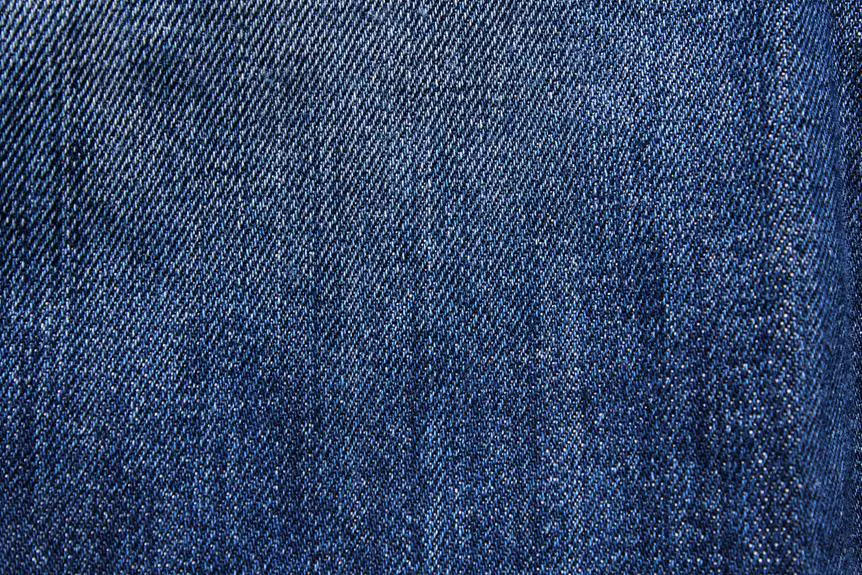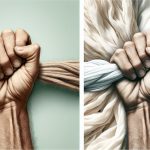When it comes to making jeans, the fabric you choose is like the backbone of your creation. It's essential to select the perfect material that embodies both quality and style.
The best fabrics for making jeans are those that offer durability, comfort, and a classic denim aesthetic. From traditional cotton denim to stretch denim for added flexibility, each fabric brings its own unique characteristics to the table.
You'll also want to consider raw denim for its unbeatable toughness and selvedge denim for its artisanal craftsmanship.
Keep in mind that alternative denim fabrics like Tencel and hemp are also gaining popularity for their sustainability and eco-friendly properties.
Understanding the nuances of each fabric will ensure you create the perfect pair of jeans.
Key Takeaways
- Denim fabric is known for its durability, comfort, style, and timelessness, making it an ideal choice for making jeans.
- Cotton is a preferred fabric for jeans due to its comfort, natural feel, moisture-wicking properties, and durability.
- Stretch denim provides a comfortable fit, flexibility, shape retention, and durability, making it a great option for comfortable and flexible jeans.
- Raw denim offers strength, unique fading, heavyweight construction, and personalization, making it the perfect choice for those who prioritize durability in their jeans.
- Selvedge denim stands out for its meticulous weaving process, superior craftsmanship, durability, and attention to detail, making it the preferred choice for those who value the artistry and craftsmanship behind their denim garments.
Denim Fabric Characteristics
Choosing the right denim fabric for making jeans requires understanding the unique characteristics of denim. When it comes to durability, denim is in a league of its own. Its tightly woven cotton twill construction makes it exceptionally sturdy, able to withstand the rigors of everyday wear. This durability is what's made denim the go-to fabric for workwear and casual clothing for generations.
Comfort is another key aspect of denim. While initially stiff, denim softens over time, molding to your body for a custom fit. The thickness of the fabric provides a sense of security and support, while still allowing for ease of movement. This balance is crucial for creating jeans that aren't only durable but also comfortable to wear all day long.
In terms of style, denim has an unmatched versatility. Whether you prefer a classic, rugged look or a more polished appearance, denim can accommodate. Its timeless appeal means that denim jeans can effortlessly transition from a casual day out to a more formal setting, making it a wardrobe staple for many.
Understanding these characteristics is essential for selecting the right denim fabric to create jeans that strike the perfect balance between durability, comfort, and style.
Cotton: The Ultimate Choice
When making jeans, you should opt for cotton as the ultimate choice of fabric. Cotton offers unparalleled comfort that allows your skin to breathe, making it ideal for everyday wear. Its natural fibers provide a soft and smooth texture, ensuring that your jeans feel comfortable against your skin all day long.
Additionally, cotton fabric is highly absorbent, wicking away moisture and keeping you feeling fresh and dry, adding to its appeal as the perfect choice for jeans.
Cotton comfort: The breathability and softness of cotton make it a top contender for creating jeans that you'll love to wear.
Natural feel: The smooth texture of cotton against your skin provides a luxurious wearing experience, enhancing the overall comfort of your jeans.
Moisture-wicking properties: Cotton's ability to absorb moisture keeps you feeling comfortable and confident, making it an excellent fabric choice for jeans.
Apart from its comfort, cotton is renowned for its durability, making it the ideal fabric for hard-wearing garments like jeans. Its strength and resilience ensure that your jeans will withstand the test of time, maintaining their quality and comfort wear after wear.
Stretch Denim: Comfort and Flexibility
For creating comfortable and flexible jeans, consider using a stretch denim fabric. Stretch denim is a popular choice for those who prioritize both style and comfort. The fabric's stretchability ensures a comfortable fit while providing the flexibility needed for daily activities.
The addition of elastane or spandex to traditional denim enhances its stretchiness, allowing for ease of movement without sacrificing durability. This blend of materials offers the best of both worlds, as it molds to your body, providing a sleek, tailored look without feeling restrictive.
The stretch denim fabric retains its shape, even after continuous wear, making it an ideal option for those seeking long-lasting, comfortable jeans. Moreover, the fabric's durability ensures that your jeans will withstand the test of time, maintaining their comfortable fit and flexibility throughout their lifespan.
When crafting jeans that prioritize both comfort and flexibility, stretch denim is undoubtedly an excellent choice.
Raw Denim: Unrivaled Durability
If you prioritize durability in your jeans, raw denim is the ideal choice due to its unmatched strength and resilience. Raw denim, also known as unwashed denim, is crafted using traditional methods and dyed with natural indigo, resulting in a deep, long-lasting color that gradually fades, creating a unique, vintage look over time.
Additionally, by incorporating raw denim, you ensure that your jeans not only provide comfort and flexibility but also withstand the rigors of daily wear. The heavyweight fabric used in raw denim makes it exceptionally durable, ensuring it can withstand years of heavy use without losing its shape or integrity.
This creates a sense of heritage and authenticity, making each pair of raw denim jeans a personal canvas that tells the story of your adventures and experiences. The rugged, unaltered nature of raw denim evokes a sense of timeless quality, allowing you to forge a lasting bond with your jeans as they age alongside you.
Selvedge Denim: Quality and Craftsmanship
To achieve exceptional quality and craftsmanship in your jeans, opt for selvedge denim, known for its meticulous weaving process and distinct finished edges. Quality construction is paramount in the world of denim, and selvedge denim is revered for its attention to detail.
Unlike regular denim, which is mass-produced using projectile or rapier looms, selvedge denim is woven on traditional shuttle looms. These old-style denim weaving techniques create a tightly woven fabric with a clean, self-finished edge, known as the 'selvedge,' running along the outseam of the jeans. This results in a more durable and higher quality material, making selvedge denim an excellent choice for those seeking jeans with superior craftsmanship.
The labor-intensive nature of producing selvedge denim contributes to its reputation for excellence. The narrower fabric width produced on shuttle looms requires more fabric and time to produce, but the result is a denser, more tightly woven fabric that's less prone to fraying and unraveling. This level of detail and care in the weaving process is what sets selvedge denim apart, making it a preferred choice for those who value the artistry and craftsmanship behind their denim garments.
Alternative Denim Fabrics
You may sometimes encounter alternative denim fabrics that offer unique characteristics and styles for making jeans. When exploring these options, consider the following:
- Sustainable Options: Embrace sustainability by opting for denim made from organic cotton, recycled materials, or hemp. These eco-friendly choices not only reduce environmental impact but also contribute to a more ethical and responsible fashion industry.
- Innovative Blends: Explore the world of denim blends that incorporate materials such as Tencel, modal, or elastane. These innovative blends can enhance the comfort, stretch, and durability of jeans, providing a fresh take on traditional denim while catering to the demands of modern lifestyles.
- Novel Textures and Finishes: Delve into alternative denim fabrics that offer unique textures and finishes, such as jacquard denim, corduroy denim, or even denim with metallic or coated elements. These options can add a distinctive flair to your jeans, allowing you to express individuality through your choice of fabric.
Frequently Asked Questions
What Are the Best Fabric Blends for Creating Sustainable Denim Jeans?
For creating sustainable denim jeans, the best fabric blends include eco-friendly materials like organic cotton, hemp, and recycled polyester. These blends offer durability, comfort, and support sustainable production practices, making them ideal choices for environmentally conscious denim production.
How Does the Weight of the Denim Fabric Affect the Durability and Comfort of the Jeans?
Choosing a denim weight that balances durability and comfort is crucial. Sustainable blends and plus-size considerations impact the choice. Reducing environmental impact can be achieved through luxury denim fabrics with a focus on durability and comfort.
Are There Any Special Considerations for Choosing Denim Fabric for Making Plus-Size Jeans?
When choosing the right denim for plus size jeans, consider fabric weight for comfort and durability. Look for sustainable blends to reduce environmental impact. Luxury denim fabrics can offer both style and support eco-friendly production.
Can Certain Denim Fabrics Help to Reduce the Environmental Impact of Jeans Production?
When it comes to eco-friendly denim, consider sustainable options made with innovative technologies. These fabrics can help reduce the environmental impact of jeans production by minimizing water usage, chemical waste, and energy consumption.
What Are the Best Denim Fabrics for Creating High-End, Luxury Jeans?
When creating high-end, luxury jeans, the best denim fabrics incorporate custom finishes and innovation. Quality craftsmanship and luxury design are essential for achieving the desired look and feel. These elements elevate the jeans to a whole new level.
- How to Wash Polycotton: The Ultimate Guide to Care and Longevity - June 23, 2025
- How to Pronounce Polycotton: A Quick Audio and Phonetic Guide - June 23, 2025
- How to Get Wrinkles Out of 50/50 Polycotton Sheets (Without an Iron) - June 23, 2025







